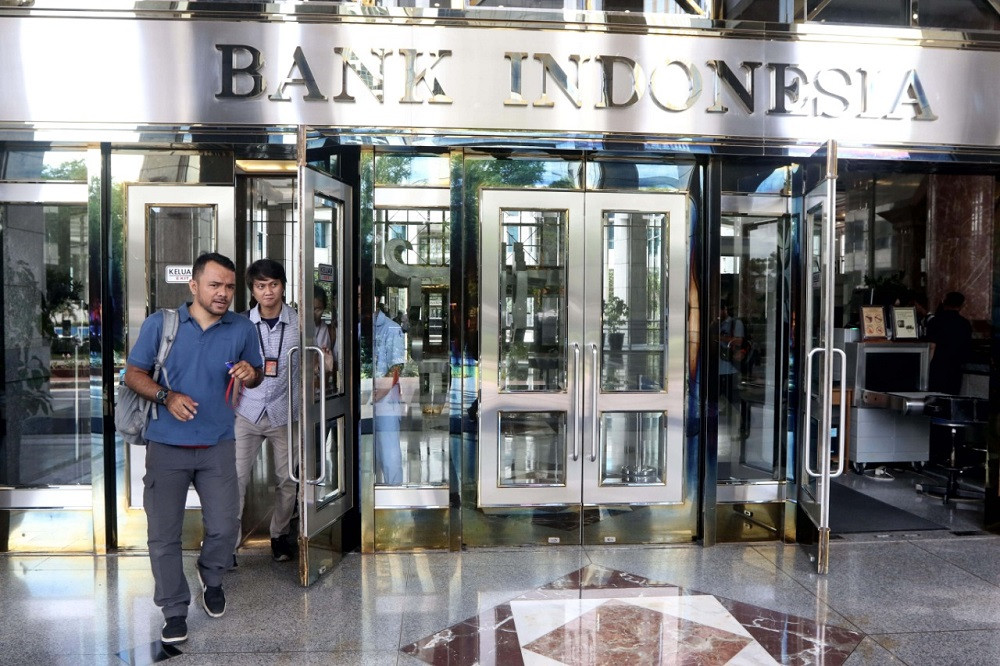Popular Reads
Top Results
Can't find what you're looking for?
View all search resultsPopular Reads
Top Results
Can't find what you're looking for?
View all search resultsSharing Delta’s costs
If the government decided to bear the costs of the Delta variant outbreak without the central bank's help, it would be impossible to bring the fiscal deficit below 3 percent of gross domestic product (GDP) by 2023.
Change text size
Gift Premium Articles
to Anyone
T
he impact of the Delta variant of the coronavirus has been so devastating that the government has again asked Bank Indonesia (BI) to share the financial burden of public health care and of social aid for the approximately 162 million Indonesians hurt by mobility restrictions.
The dire situation has called for the extraordinary measure of extending the 2020 burden sharing agreement between the government and the central bank, supposed to be a one-off deal, to the 2022 fiscal year.
Under the new agreement, signed last week, BI will buy Rp 439 trillion (US$30 billion) worth of government bonds in two clusters, the first amounting to Rp 58 trillion in 2021 and Rp 40 trillion in 2022, all interest free, and the second amounting to Rp 157 trillion in 2021 and Rp 184 trillion in 2022, bearing interest at the BI seven-day reverse repo rate, which averaged 3.39 percent this year. But this rate is only half as high as the 10-year bond yield average of 6.3 percent. Net government bond issuance is estimated to be Rp 778 trillion in 2021 and Rp 767 trillion in 2022.
There are only two alternatives, both inimical to fiscal and monetary management. If the government decided to bear the costs without BI’s help, it would be impossible to bring the fiscal deficit below 3 percent of gross domestic product (GDP) by 2023. Even with the burden sharing agreement, debt servicing costs will increase by almost 11 percent next year, to Rp 410 trillion or 18 percent of total state revenue, compared to the average of 7.4 percent in investment-grade countries.
A decision to reject the deficit ceiling would require the amendment of Law No. 2/2020, which would have political implications and a negative impact on the sovereign credit rating, the cost of government borrowing, the rupiah exchange rate and inflation, especially as the US Federal Reserve is expected to start tightening its money policy later this year.
Fortunately, Law No 2/2020 does not require the House of Representatives’ approval for the extension of the 2020 burden sharing arrangement. BI understands that the situation is beyond the government’s control, as few could have predicted that the Delta variant would cause a second wave of the pandemic.
Certainly, investors and credit rating agencies, who were previously assured that the debt monetization – that is, money printing – program would be a one-time occurrence, will be concerned about the reliability of government policy making and the independence of BI which, according to analysts, already holds Rp 987 trillion worth of government bonds.
But if the government is able to remain on the path of fiscal consolidation to bring the deficit below 3 percent of GDP by 2023, the damage of the burden sharing extension will be less severe. After all, many other governments hit by the pandemic have made such agreements with their monetary authorities.










